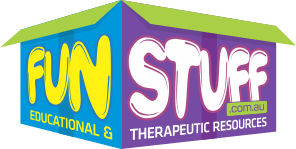A Guide to Teaching Children with Autism : Strategies, Tools & Key Points
Understanding, educating, and supporting children with Autism Spectrum Disorder (ASD) requires an exceptional blend of patience, creativity, and tailored strategies. ASD is a broad term used to describe a group of neurodevelopmental disorders, characterised by difficulties in social interaction, communication, and restricted or repetitive behaviours.
For teachers, these factors can create unique challenges in the learning environment.
However, with well-thought-out approaches and proper resources, we can effectively engage autistic children in their learning process and aid their skills development. This article aims to provide comprehensive guidelines for teaching autistic children, focusing on effective methodologies, use of specially designed tools, and maintaining an encouraging learning environment.
Developing Individualised Learning Plans
To teach effectively, it's very important to get to grips with the usual behaviours and characteristics that come along with autism. Each child with autism has distinct needs, strengths, interests, and abilities. As a teacher, it's vital to develop an Individualised Learning Plan that is tailored to meet these specific needs.
This plan should be flexible of course, allowing for modifications as the child's skills evolve over time. A collaborative approach involving parents, therapists, and educators often produces the best outcomes.
Creating an Autism-Friendly Learning Environment
Creating a suitable learning environment is paramount. An autism-friendly learning environment is often structured, consistent, and well-organised. Providing clear instructions, maintaining a routine, and limiting distractions can contribute significantly to an autistic child's learning experience.
Incorporate Specialised Toys, Games & Accessories into the Learning Experience
One of the key strategies to ensure autistic children remain engaged in their learning is through the use of specialised toys, games, and accessories. These resources are designed to stimulate their interest while helping them develop social, cognitive, and motor skills.
Examples include puzzle games, flashcards and flipbooks, sensory toys, Thumballs, interactive learning games, and assistive technology devices. Remember, the chosen tools should align with the child's Individualised Learning Plan to maximise their potential.
Utilise Visual Aids
Children with ASD often respond well to visual aids - pictures, diagrams, flow charts, and other visual resources can be used to explain concepts, create schedules, or provide instructions. Visual aids can help reduce misunderstanding and enhance their comprehension.
Emphasis on Social Skills
Social skills training is a critical part of teaching children with ASD - this could be facilitated through role-playing, social stories, or guided interaction with peers. Also, consider integrating games and activities designed to enhance social understanding into your teaching approach.
Positive Reinforcement
Positive reinforcement encourages the repetition of good behaviour. When an child with ASD achieves a goal or demonstrates a desired behaviour, acknowledging their success with praise or a reward can reinforce that behaviour. This method can be instrumental in helping them acquire and retain new skills.
Regular Breaks
Remember, learning can be an intense process for any child. Incorporating regular breaks into the learning schedule can prevent them from feeling overwhelmed. These breaks also provide opportunities for physical activity or sensory play, aiding overall development.
Continued Professional Development
Stay up to date with the latest research and strategies in autism education. Regular professional development allows for the adaptation of new methods, contributing to the ongoing improvement of the learning experience for children with ASD.
Teaching children with autism can be a rewarding journey filled with significant milestones
With a blend of well-structured strategies, specially designed resources, and an enduring commitment to understanding and patience, we can create a positive impact on the lives of children with ASD.
Fun Stuff Educational & Therapeutic Resources supplies parents, therapists and educators with specially designed toys, games and resources for assisting children experiencing learning difficulties or impaired skills development. Please don’t hesitate to contact us.
Recent Posts
-
Top Educational Toys for Children with Special Needs
Play is not only entertaining, but it is critical when it comes to assisting children to learn and d …2nd Feb 2026 -
What Are Sensory Toys and Why Are They Important?
Children learn more than watching or listening. They learn through engaging in movement, touching, f …12th Jan 2026 -
Boost Speech Confidence: The Essential Guide to Choosing and Using Premium Articulation Cards
Every parent, educator, and speech-language pathologist (SLP) understands the transformative power o …7th Nov 2025




